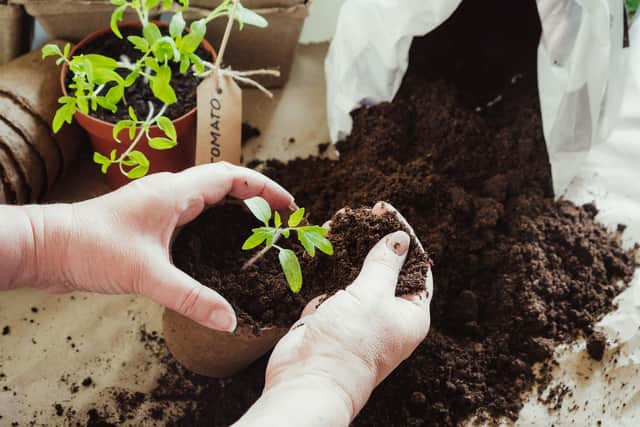What we can do across our communities to reverse the degradation of soil - Yorkshire Post Letters
The Yorkshire Post article highlighting the loss or degradation of soil on a global scale is of great concern to me (The Yorkshire Post, March 18).
This can be reversed by maintaining a healthy soil which is packed with millions of micro and macro organisms, which play an important part by working together in nature's food chain, and creating a better enriched soil, making a natural growing medium for more diversity of plants to establish and attract more insects, small animals and birds.
Advertisement
Hide AdAdvertisement
Hide AdOne of the best natural creators of this is leaf mould, which are leaves and stems from trees, shrubs, perennials and annual plants naturally breaking or rotting down creating this musty smelling organic matter or compost.


This musty smell is a good indicator that the natural process is working well to create organic matter.
Local authorities should be saving leaves, dropped from trees in parks and street trees and compost them. It really doesn't matter if there is a small amount of plastic litter, as the plastic takes thousands of years to break down anyway.
There shouldn't be any more operational cost to council-run street scene service departments, as instead of taking this material to landfill, divert the cleaning vehicles to compost bays in large parks and open spaces, or in rural locations, do a deal with farmers who grow arable crops.
Advertisement
Hide AdAdvertisement
Hide AdThe general public needs educating about composting techniques by starting in primary schools where the end product can be used for growing vegetables and flowers in the school grounds, and children can learn where vegetables and fruit comes from and realise that it doesn't just appear on a supermarket shelf.
Local authorities should arrange introductory courses for composting techniques and growing simple salad crops like radish, salad leaves and tumbling tomatoes in colleges and schools out of term time.
This I believe, if done with the commitment of local politicians, and council officials would (not could) ultimately lead to a better diet and lifestyle of residents in not only villages but also large towns and cities resulting in savings to the NHS budgets.
If you haven't got a garden, vegetables can be grown in large plant pots and window boxes.
Advertisement
Hide AdAdvertisement
Hide AdThe Royal Horticultural Society can give expert advice, and they organise a national 'In Bloom' competition, which enthuses communities to not only improve their local environment but fosters more community spirit which is lacking today as it gets people talking.
I can hear residents saying that it will not work in our town. In Barrow in Furnace, Cumbria when I was in charge of parks, open spaces and allotments in the early 1990s I convinced the then Chief Executive Officer, Tom Campbell, that the authority should enter Cumbria in Bloom and we managed to get third place against towns like Keswick and Kendal in the lake district.
It took up a lot of my and staff time, organising grow bags on bus shelters filled with trailing flowers, and most importantly making sure that they were watered. But at the award ceremony of Cumbria in Bloom a few personally thanked me for pushing them into this extra work.